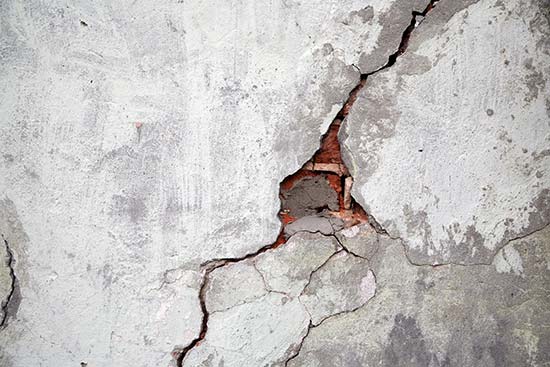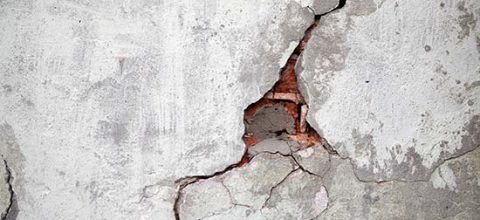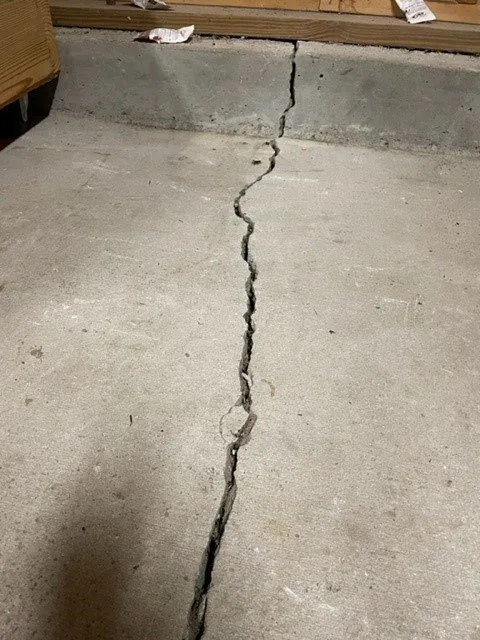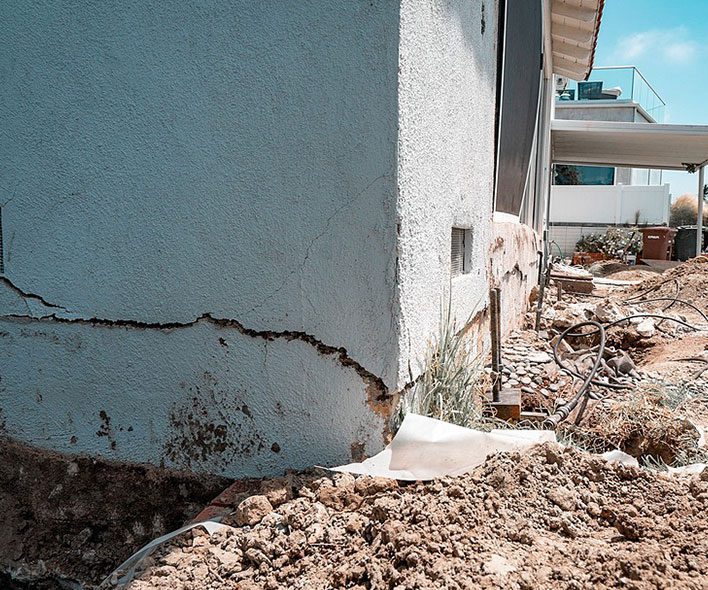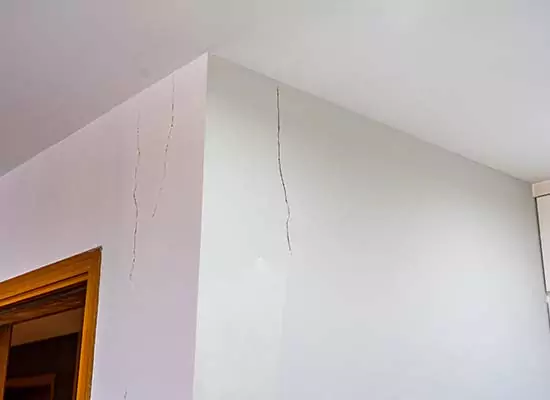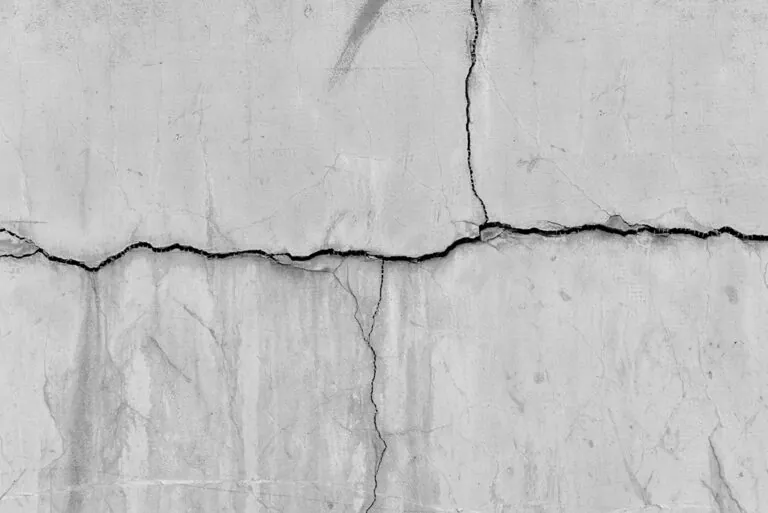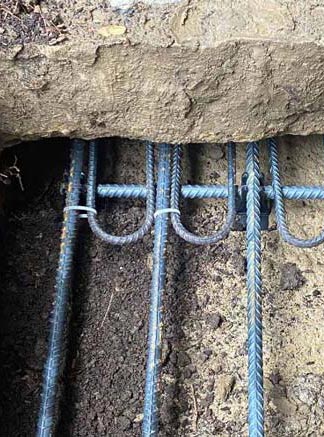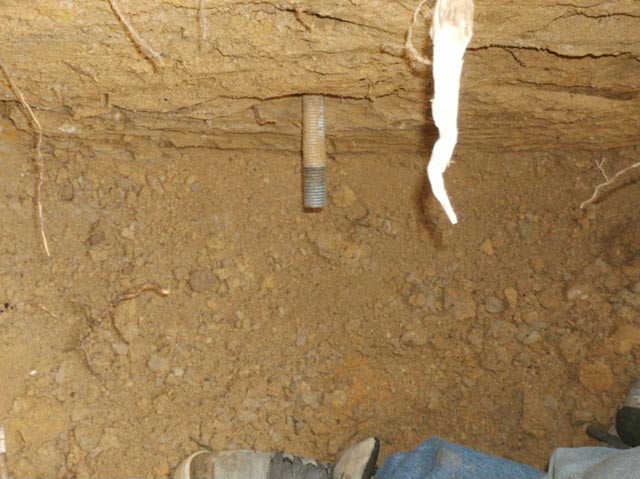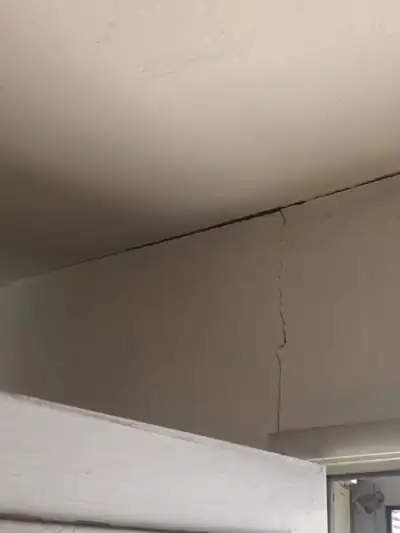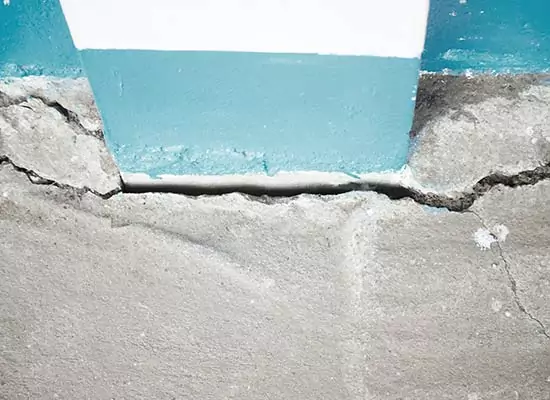Wondering if there’s such a thing as normal foundation cracks? Well, let’s just say that foundation cracks aren’t unusual. In fact, they’re pretty common, and even brand new homes get them. So, perhaps a better way to phrase it would be…
Are Foundation Cracks Normal?
Yes, you could say that foundation cracks are normal. However, not all foundation cracks are the same. Some are just ugly, while others are structurally significant. In other words, some cracks can affect your home’s structural integrity. All homeowners should learn which is which because repairing foundations isn’t cheap. Some foundation problems can cost tens of thousands of dollars to fix. Foundation problems caught early mean money saved.
So, is There Such A Thing As Normal Foundation Cracks?
While foundation cracks are pretty normal, they aren’t always harmless. Sometimes they’re a sign of a problem that needs to be immediately addressed. These are called structural cracks. Other times, the cracks are just unsightly. We call these non-structural cracks. However, over time, even non-structural cracks could turn into structural cracks. So, whenever you see a foundation crack, pay attention to it.
Types of Foundation Cracks – Non-Structural vs. Structural
Non-structural cracks
Non-structural cracks are cracks that don’t affect your home’s structural integrity.
One common type of non-structural crack is often found in poured concrete foundation walls. These non-structural cracks are usually hairline and vertical and caused by shrinkage during the concrete curing (i.e., hardening) process. Usually, they’re nothing to worry about if they’re no wider than a dime’s edge and there’s no water coming through them. If there’s water coming through them, they’ll need to be repaired.
If these cracks start to grow, they could be structural cracks. In that case, you’ll need to contact a foundation repair contractor right away for an inspection. Remember, the earlier you spot and repair cracks, the less money you’ll spend. So, don’t delay.
Structural cracks
Structural cracks are cracks that affect your home’s structural integrity. These are not drywall or plaster cracks. Those are merely ugly. Structural cracks are cracks in concrete block foundation or poured foundation walls.
Structural cracks are often horizontal and caused by poor drainage and the build-up of hydrostatic pressure in the soil around the foundation. Hydrostatic pressure can eventually cause foundation walls to bow inward and even crack. Structural cracks can also be caused by the freeze-thaw cycle in cold climates.
Hairline diagonal cracks usually aren’t serious. (You should still monitor them for growth.) However, larger diagonal cracks from the corners of windows and doors toward the ceiling are structural and signify differential settlement or when the foundation is settling into the soil unevenly. See the below graphic.
Stair step cracks in brickwork or masonry are also structural and a sign of differential settlement.
Foundation Cracks to Be Concerned About
If you see any of the following cracks, contact a foundation repair contractor for an inspection:
- Cracks wider 1/10 inch
- Cracks that are wider at one end
- Cracks that are getting larger
- Floor cracks that run wall to wall
- Stairstep cracks in brick or masonry
- Horizontal cracks, without or without bowing
- A series of vertical cracks next to each other
- Large diagonal cracks
- Cracks that run across the ceiling and down a wall
For more information, see, Ceiling Cracks When To Worry.
Causes of Foundation Cracks
The causes of foundation cracks are many and include:
Soil that wasn’t adequately compacted before construction began
If this isn’t done, the home will settle into the loose soil after it’s built, which will probably cause differential settlement.
Expansive soil
Expansive soils swell when they soak up water and shrink when they dry out. Over time, this can cause foundation trouble because the swelling-shrinking cycle creates movement in the soil under the foundation.
Changes in weather after construction
An example of this would be building a home on top of expansive soil during the dry season. When the wet season comes around again, the soil soaks up water and swells. This creates movement under the foundation leading to cracks.
Poor drainage
Water is the leading cause of foundation trouble. Poor drainage around a foundation can lead to wall cracks caused by things like hydrostatic pressure, soil erosion, and the swelling of expansive soil.
Downhill creep
Homes built on the sides of hills can experience lateral movement caused by downhill creep. This is when the soil at the top of the hill slowly makes its way down the hill.
Earthquakes and other natural disasters
We probably don’t need to explain how these cause foundation problems.
Heavy excavation next to the foundation
If your neighbor digs a big hole in his yard too close to your foundation, it could cause problems.
Tree roots drinking water from the soil
This can dry out the soil around the foundation leading to void formation. When the foundation settles into the voids, cracks form.
Plumbing leaks
Plumbing leaks and poor drainage are a recipe for disaster.
Poor design or construction
These things happen.
Frost heave
When soil freezes, it expands and pushes against the foundation.
All of the above cause foundation cracks because they cause differential settlement.
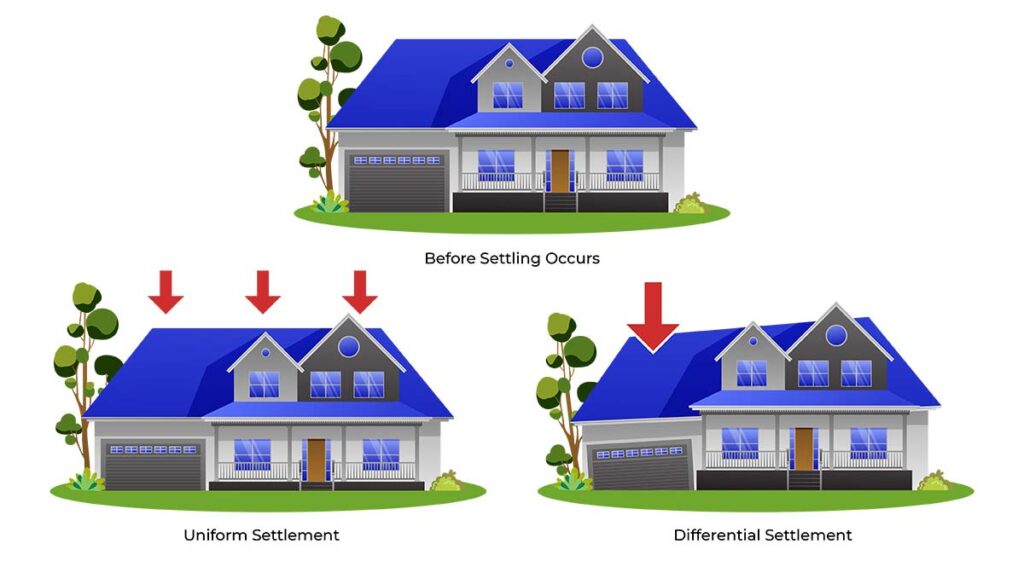
Yes, You Need To Repair Foundation Cracks
Structural cracks should never be left unrepaired. They affect your home’s structural integrity and will only get worse. At that point, you’ll be facing an even costlier repair. Act fast and save money.
However, even non-structural cracks might need to be repaired. For example, vertical cracks in a poured concrete foundation wall caused by shrinkage during the concrete curing process could allow water to seep into your basement if they’re not repaired. These cracks should also be monitored for growth. Take photos and measure them periodically. If they grow (or are wider than the edge of a dime), contact a foundation repair contractor.
For more information see, Repairing a Brick Foundation.
Signs Your Home May Have a Foundation Problem
The following are common signs of a foundation problem. If you see any of them, contact a foundation repair contractor for an inspection:
- Doors and windows that don’t open and close properly
- Uneven floors
- Cracks from the corners of doors and windows
- The crown molding or baseboard is pulling away from the wall
- There are gaps between the wall and the floor or between the wall and the ceiling
- Wall cracks
- Floor cracks that run wall to wall
- Ceiling cracks
- Bowed basement walls, without or without cracking
- Your chimney or porch is pulling away from the rest of the house
Check out our complete guide to foundation cracks.
How To Prevent Foundation Problems
Water is the culprit behind most foundation problems. Therefore, homeowners can prevent foundation trouble by controlling groundwater around their foundation. Here are a few things you can do:
Install a drain tile system
A drain tile system works by preventing excess water from building up in the soil around the foundation. A drain tile system is a gold standard for foundation waterproofing.
Regrade your yard, if necessary
The yard around your home should slope away from the foundation. If it slopes toward the foundation, water will drain toward the foundation and cause trouble.
Clean your gutters regularly
Clogged gutters can cause water to spill over the side of your home and into the soil next to the foundation.
Install downspout extensions
If your downspouts are too short, they’ll release water too close to the foundation. Extensions are easy to install and will channel water away from the foundation before releasing it.
Keep flowers and shrubs at least 2 feet away from your foundation
If they’re next to your foundation, watering them will mean adding water to the soil around the foundation.
If your home has suspicious foundation cracks and you’re in our Virginia Beach or Hampton Roads service area, contact us today for a free inspection and estimate.

